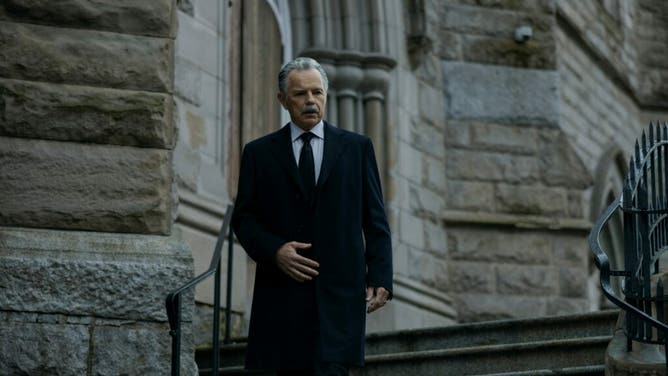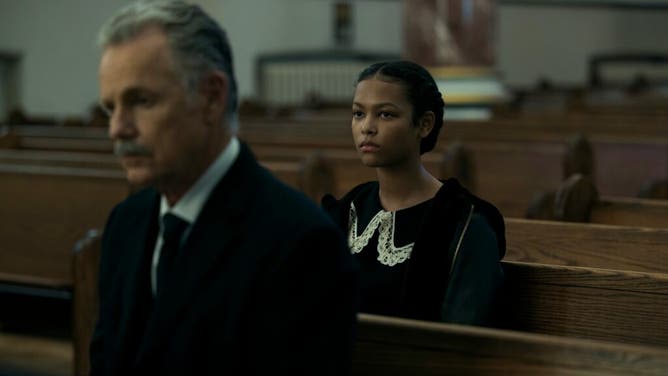'The Fall Of The House Of Usher' Lives Up To The Hype As TV's Next Great Series: REVIEW
"The Fall of the House of Usher" exceeded all expectations.
I've been intrigued by the limited Netflix series ever since I saw the first trailer. Mike Flanagan is the creative genius behind the series, and he's the same man responsible for “The Haunting of Hill House,” “The Haunting of Bly Manor” and the outstanding “Midnight Mass.”
I was locked in on "The Fall of the House of Usher" as soon as I saw the first trailer. I crushed the first episode as soon as I could, and LOVED it.
Now, I have the entire series in the books, and I was incredibly impressed. Let's dive in, and then send me your thoughts to David.Hookstead@outkick.com.
"The Fall of the House of Usher" is great.
As OutKick readers know, I have very high expectations when it comes to TV. It better be damn good if I'm going to spend my time watching it.
The content/blog game is a busy one, and in order for me to commit my time to a show, it has to be worth every second.
Given how much I loved "Midnight Mass," I knew there was no chance that I'd miss "The Fall of the House of Usher."
The plot revolves around the Usher pharmaceutical dynasty facing criminal charges after playing a huge role in the drug epidemic.
However, much like the rest of Flanagan's work, nothing is as simple as it seems on the surface. The children of patriarch Roderick Usher (Bruce Greenwood) all start dying in unbelievably violent and horrific ways, and there's a woman named Verna (Carla Gugino) who is at the center of it.
From there, there are multiple flashbacks to the late 1970s where viewers watch Roderick and his sister Madeline's origin story unfold. A 1979 bar scene is also where people get to meet Verna.
The series is very dark at times.
WARNING: THERE WILL BE SPOILERS. DON'T KEEP READING IF YOU AREN'T CAUGHT UP. CONSIDER YOURSELF WARNED.
The entire series focuses on how the entire Usher family is full of absolutely awful and terrible people, minus granddaughter Lenore.
Verna seems to take great joy in killing them. It appears the strange character - who is not human - believes ridding the world of the Usher family is doing a great duty, but why is she doing it?
That's what the series spends eight episodes exploring, and there's a critical moment when it's revealed Verna has been around for hundreds of years, possibly thousands. She speaks in a manner that leads viewers to believe she has been around since ancient times, and didn't age a day.
She also has the means to kill people with a quick touch or in the most gruesome way imaginable, but why?
That's at the core of the series, and it's revealed towards the end that Roderick and Madeline struck a deal with Verna after committing a murder to make sure they would ascend to power, but all their entire bloodline would die whenever they do.
Verna is just making good on the deal she made in 1979. The same deal she'd made with so many other powerful individuals.

"The Fall of the House of Usher" is outstanding. (Cr. Eike Schroter/Netflix © 2023)
The only death that is difficult for her to stomach is Lenore's, and she does it in painless fashion after telling her all the good things that will come once the Usher family is gone.
At the center of the show is how power corrupts. The Ushers had the world, and instead of doing good, they helped spread mass death to all corners of the planet. They spent decades poisoning people and Roderick had the most unbearable children on the planet instead of doing good things.
Now, there are a couple preachy moments. I won't lie about that. There are a couple cringe lines, and one not-so-subtle jab at Donald Trump having also struck a deal with Verna. I can stomach a couple cringe moments in an eight-episode limited series.

"The Fall of the House of Usher" is definitely worth watching. Cr. Eike Schroter/Netflix © 2023
Overall, "The Fall of the House of Usher" is outstanding, and I can't recommend it enough. Send me your thoughts to David.Hookstead@outkick.com if you've seen it. I look forward to hearing from you!